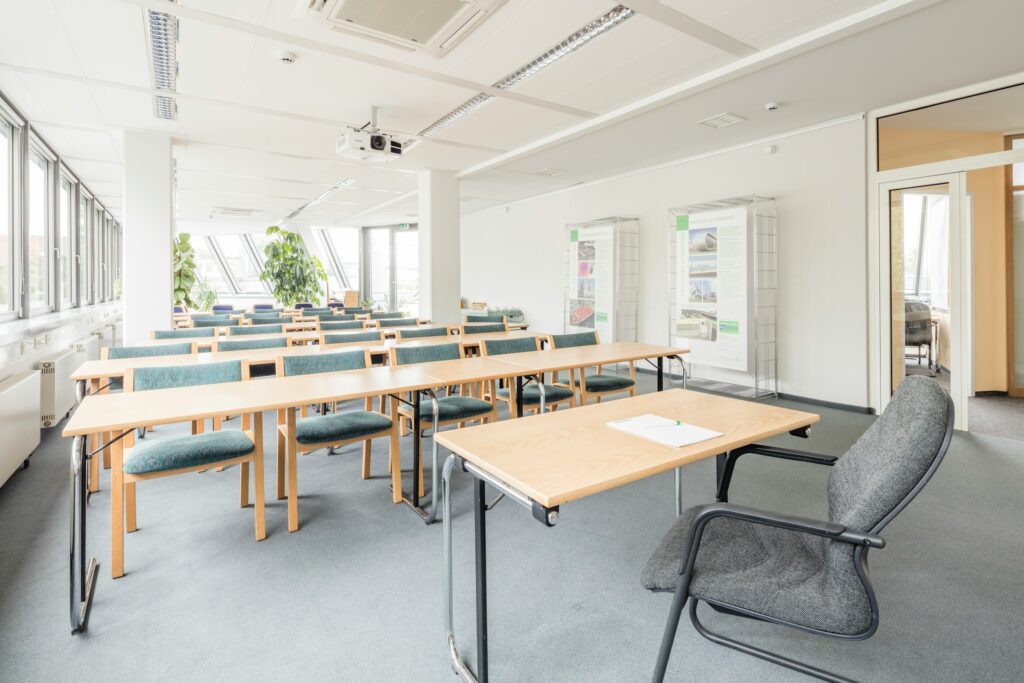
Kathryn Taylor, EdD candidate, IOE, UCL’s Faculty of Education and Society, UK Effective teacher professional development (PD) matters. The question is: how can high-quality, transformative PD be realised in schools? Relationships between organisational cultures and teacher learning are complex. I suggest that a clearer understanding of how the language surrounding PD is used and understood […]

Jennyfer Townsend, Louise Pagden and Alisa Gin, CfBT Education Services, Brunei Darussalam Discourses around teacher professional development (PD) have long framed it as something that ‘is done to the professional’ (Webster-Wright, 2009, p. 11), treating teachers as passive consumers of professional knowledge rather than as active participants. Research, perhaps unsurprisingly, shows that teachers perceive such […]

David Greenshields FCCT, Grace College, UK Grace College joined the Emmanuel Schools Foundation in April 2019. At adoption in our small multi-academy trust, we inherited a staff team who were keen to improve their practice and to do all that they could to serve the diverse range of students who form our student population. Yet […]

Katie Cork, Deputy Head, St Mary’s School, UK Even before the COVID pandemic, teachers were using social media platforms such as Twitter and Facebook to develop their knowledge and skills of both the taught and hidden curriculum (Clarke, 2009). During the two periods of remote learning in 2020 and 2021, schools prioritised logistical challenges associated […]

Matt Gracie, Assistant Head (Pastoral), Bedford School, UK Nicholas Hopton, Head of English, Bedford School, UK This case study focuses on the learning created by a coaching-style development model introduced at an independent boys’ senior school. It identifies characteristics of our school’s approach, which is based on enquiry, equity and commitment to development. We found […]

Emily Giubertoni and John Cunnane, Assistant Principals, Bishop Challoner Catholic College, UK At Bishop Challoner Catholic College, we have developed a model of professional growth designed around principles of high-quality teacher development, such as the Department for Education’s continuing professional development (CPD) standard (2016), which emphasises an outcomes focus, collaboration, the role of research and […]

Emily Perry, Sheffield Institute of Education, Sheffield Hallam University, UK Nan Davies, Wellcome, UK Joelle Halliday, Sheffield Institute of Education, Sheffield Hallam University, UK Sai Patel, Learn Sheffield, UK The Wellcome CPD Challenge In recent years, the Department for Education (DfE) has implemented large-scale teacher professional development initiatives, including the ‘Standard for teachers’ professional development’ […]

Kate Mawson, Principal Lecturer, Nottingham Trent University, UK (Associate Professor, Warwick University, UK, at time of writing) Helen Cooke, Assistant Headteacher, Finham Park School, UK Claire Tyson, Teacher Researcher, Homewood School and Sixth Form, UK Introduction This case study is concerned with the development of reciprocal partnerships between researchers and practitioners for professional development (PD), […]

Dr Rachel Lawrence, Director of Professional Development, Brooke Weston Trust, UK; formerly Curriculum and Development Director, Researchers in Schools, UK How can teachers with PhDs use their research expertise to benefit the schools? In this article, I argue that completing a PhD encourages scholarly habits and dispositions that are directly relevant to a teacher’s role, […]

Dr Jan Hetherington, Deputy Director, Aspirations Learning Institute, UK The purpose of this case study is to outline the initial steps taken by Aspirations (a multi-academy trust) to rupture the prevalent culture of professional development and to privilege radical changes in practice over process (Lofthouse, 2018). In this practice development-led model (Lofthouse, 2018), individual professional […]

Nika Maglaperidze, Teaching and Learning Lead, The Ecosystem of Bulgarian Progressive Schools, Bulgaria When I joined the Foundation for Bulgarian Progressive Schools, which consists of four privately run schools across Bulgaria, professional development was a priority, albeit there were only nascent ideas as to how our teachers would grow professionally; what’s more, the whole venture […]

Jen Simpson, Project Manager, SAPERE, UK; School Development Team, Cumbria County Council; freelance researcher in association with Development Education Research Centre, Institute of Education, UCL, UK School continuing professional development (CPD) spending has dropped by 40 per cent since 2018 (Weston, 2022), and budgets continue to tighten even though research evidence emphasises the vital impact […]

Vanessa Goucher, School Improvement Professional, School Development Service, Northern Ireland Education Authority, UK SITUATION (S in the STAIR model) Senior and middle leaders in schools in Northern Ireland have the opportunity to register for a professional learning course to develop their leadership skills. ‘Steps into Leadership’ for middle leaders and ‘Senior Leadership Pathways’ for senior […]

Esther Gray, Vice Principal, The Ferrers School, UK Kennedy’s seminal paper ‘Parsing the practice of teaching’ (2015) tells us that teaching can be categorised into five persistent challenges that nearly all teachers face, regardless of their career stage. The categories include portraying the curriculum, enlisting student participation, exposing student thinking, containing student behaviour and doing […]

Chris Powell and Dom Shibli, Senior Lecturers, Secondary PGCE, School of Education, University of Hertfordshire, UK Why do we observe teachers in the classroom? From the 1980s onwards, there has been an increased demand from successive governments to ensure that schools provide value for money and are accountable for their performance. As a result, managerial […]

Emily Tanner, (formerly) Head of Research, The Careers & Enterprise Company, UK Chris Percy, Visiting Research Fellow, University of Derby, UK Why teacher-employer partnerships? There has been renewed policy interest in the role of subject teachers in supporting student career choices, raising the question of how best to equip teachers with the knowledge and skills […]

Beng Huat See, Durham University Evidence Centre for Education, UK Leslie Blanchard, Leadership Development Institute, Louisiana State University, USA Kulwinder Maude, Durham University Evidence Centre for Education, UK David Kryštof, Institute of Lifelong Learning, Mendel University, Czech Republic Christine Callender, University College London, IOE, UK Samantha Wilkes, Leeds Trinity University, UK Introduction One of the […]

Professor Tanya Ovenden-Hope, Plymouth Marjon University, UK Introduction In July 2022, the initial teacher training (ITT) monthly statistics (DfE, 2022a) demonstrated that the recruitment of trainee teachers did not reach the government target, with the total application numbers lower than those of 2019 and the actual number of applicants achieving course places for September down […]

Emma Sheppard, Founder of MTPT Project, UK Gemma Campbell (CTeach), Teaching and Learning Mentor, Coleg Llandrillo, UK Teacher recruitment, retention and progression are of increasing concern in the profession, as shown on Twitter with the latest NfER data analysis by Jack Worth (2022). The following article provides a snapshot of some of the research undertaken […]

Marie Carrick, Haberdashers’ Boys’ School, UK Megan Hall, Haberdashers’ Girls’ School, UK Introduction The introduction of the Early Career Framework (ECF; DfE, 2019a) in September 2021 provided the opportunity to deliver a joint training programme to nine beginning teachers (ITT, ECT and unqualified) from the school-centred initial teacher training (SCITT) programme at Haberdashers’ Boys and […]



















